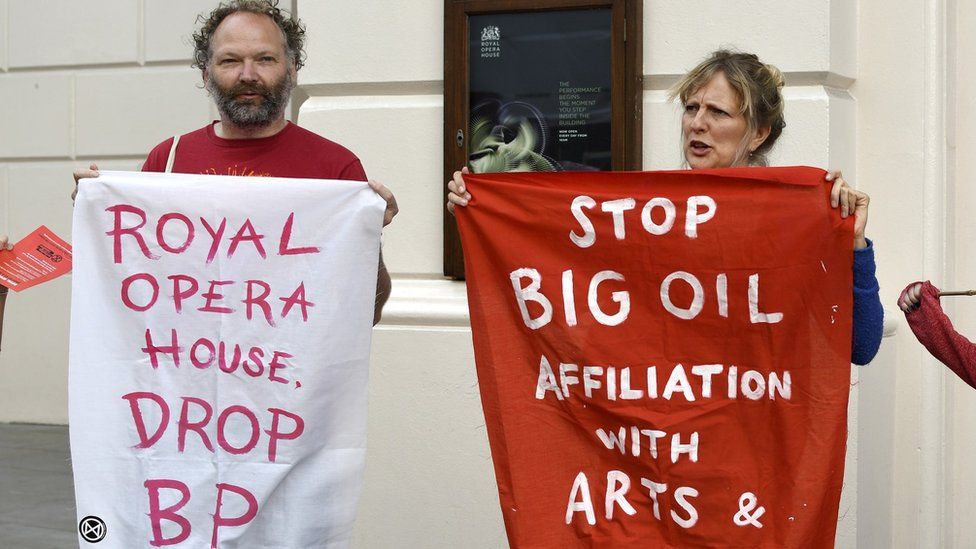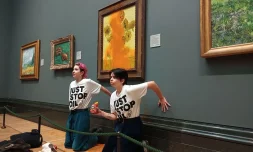Following pressure from climate activists, the arts venue has become the latest cultural institution to sever its sponsorship relationship with an oil and gas giant.
This week, BP and the Royal Opera House announced that they had not extended their partnership deal beyond December 2022, when their most recent contract came to an end.
The move follows years of protests and public outcry against fossil fuel companies having financial involvement in the British arts sector.
This tireless pressure from climate activists has so far succeeded in forcing the Tate, National Portrait Gallery, Royal Shakespeare Company, National Gallery, and BFI (among others) to reject sponsorship from oil and gas giants.
According to the BBC, the multinational has been a sponsor of the ROH since 1988.
However, in a statement on Wednesday, the cultural institution said there had been an ‘agreement’ that the funding would not be renewed.
A spokesperson told the national broadcaster that while the organisation was ‘grateful to BP for their support over 33 years,’ it had come to realise the implications of fossil fuel companies ‘artwashing’ their environmental impact through donations to creative projects.
This is what gave rise to the ROH’s decision to cut ties once and for all.

Chris Garrard, co-director of campaign group Culture Unstained, believes this represents a ‘seismic shift, a near wholesale rejection across the arts of BP’s brand and the climate-wrecking business it represents.’
As he explains, ‘by bringing down the curtain on fossil fuel funding, the Royal Opera House can now play a leading role in creating the culture beyond oil we so urgently need.’
On this note, there’s hope that the ROH’s actions will have knock-on effects across the board.
At present, the British Museum and the Science Museum are the only ones left sticking resolutely with their partners, despite long-running push back from both the public and industry insiders.
Yet with it increasingly clear that people find it unacceptable for oil and gas giants to finance cultural endeavours in the UK, it’s expected that these barriers between Brits and their wish to engage with institutions steadfastly turning a blind eye to the ecological emergency won’t be up for ever.
‘BP have been, and continue to be associated with projects which have a devastating impact on cultural heritage globally,’ says Rodney Harrison.
‘Given the British museum’s goal to act for the preservation of the world’s cultures, and the current funding period is due to expire shortly, now would be the right time for them to act in their own and the public interest to cut ties with BP.’

















